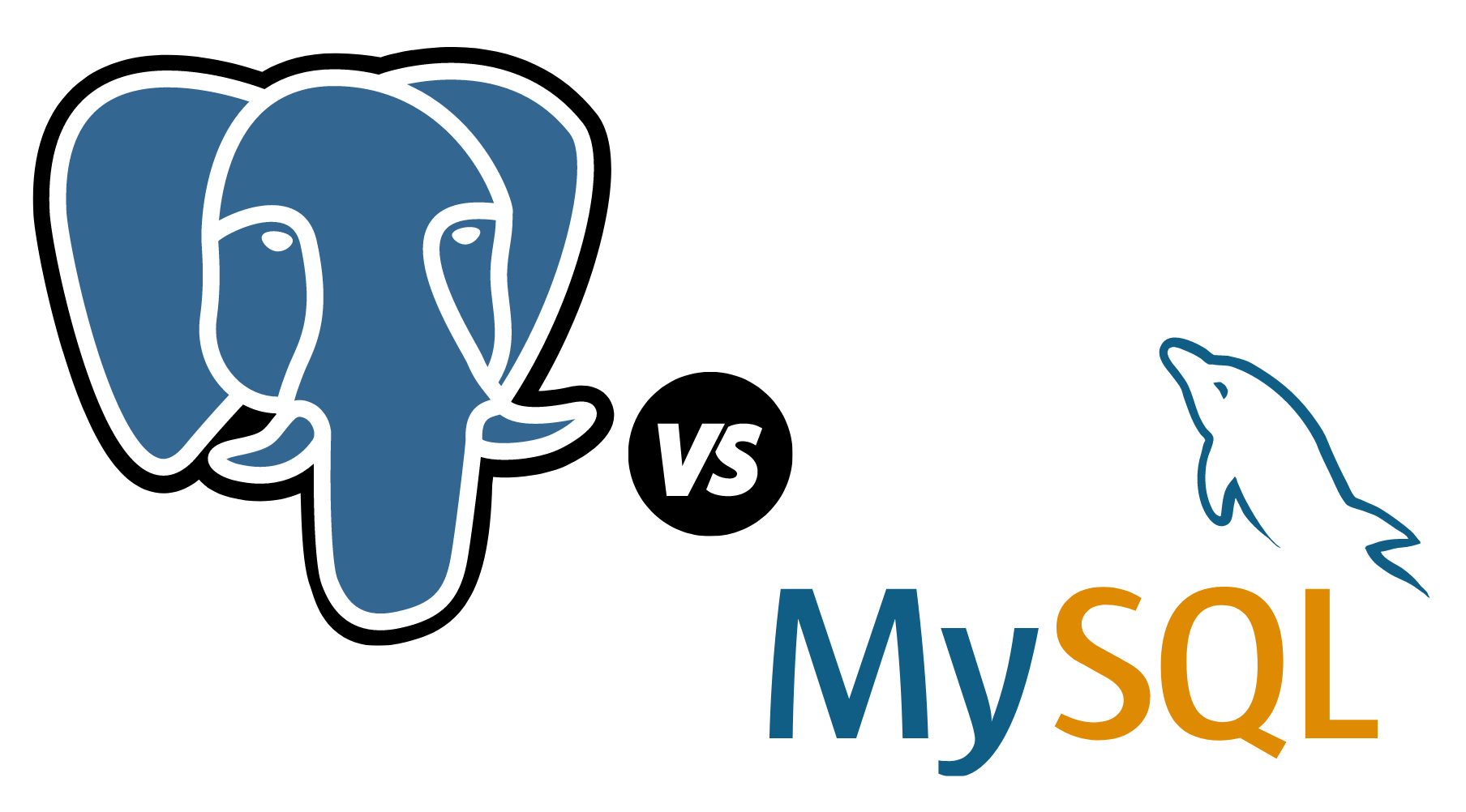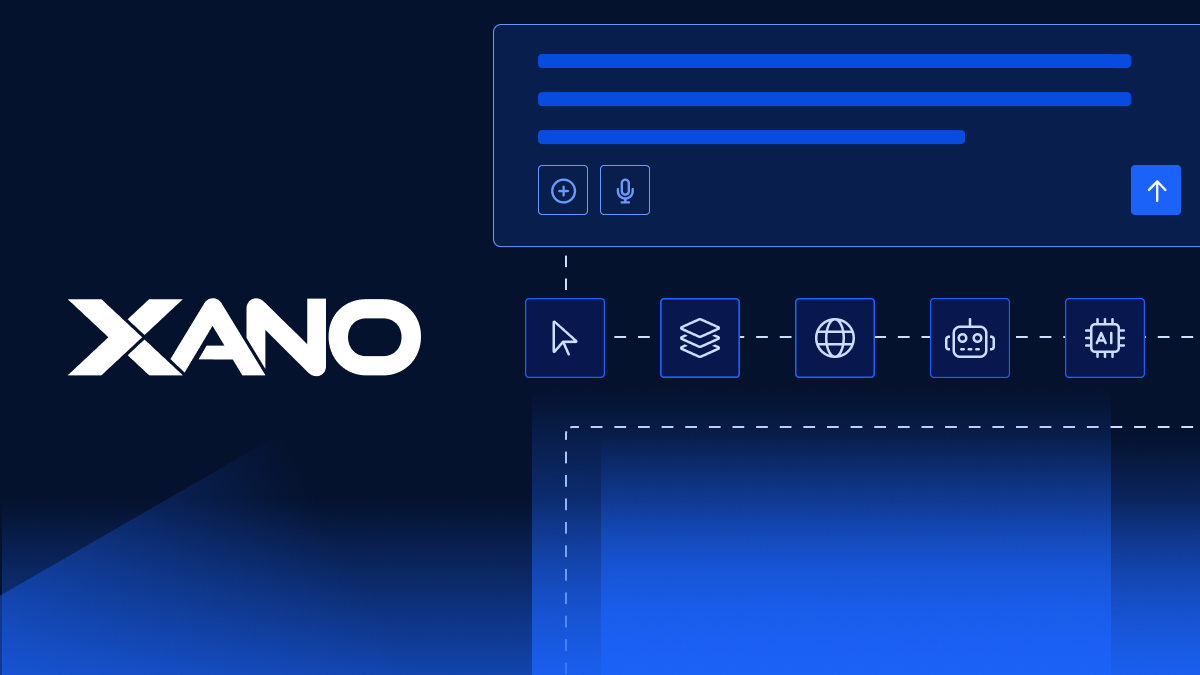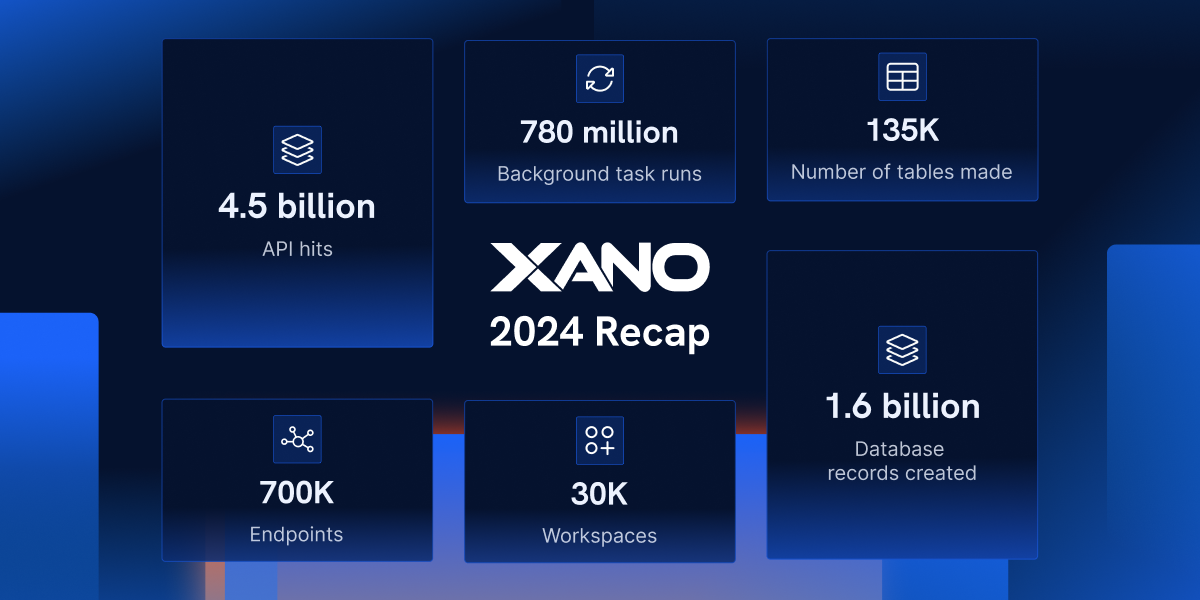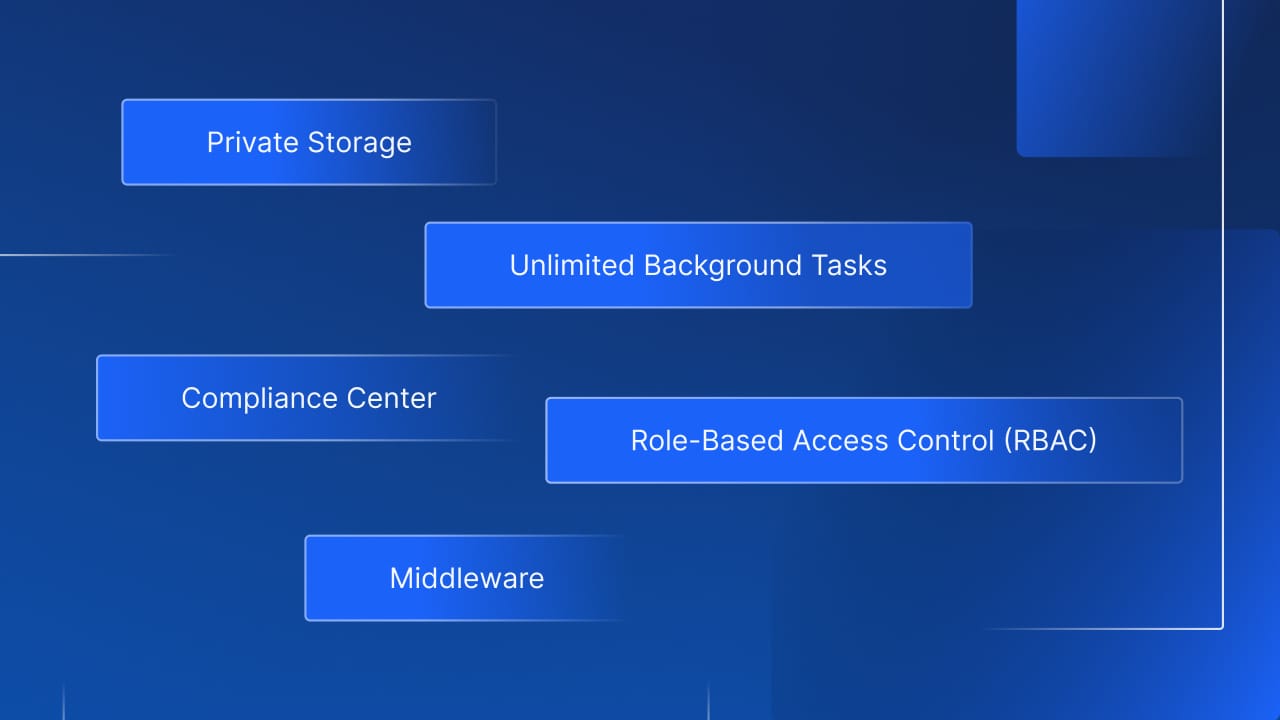PostgreSQL Vs MySQL The Important Differences
By Xano | November 18, 2021

MySQL and PostgreSQL are both very popular and high-performing database services. Investing in a database system is an important and at times daunting task. As there's a lot of overlap in terms of the features and functions of both MySQL vs PostgreSQL, choosing one over the other can get confusing fast. Below, we'll break down the basics of both services and point out some important differences that could help you decide what's right for you.
What is PostgreSQL?
PostgreSQL can be especially useful for more complicated and high-volume data operations as it comes with much more features than competitors. You have probably come across the phrase “catalog-driven” when reading up on PostgreSQL. This means PostgreSQL – in addition to storing tables and columns – allows you to define data types, index types, and functional languages. PostgreSQL is also an object-relational database, meaning it includes extra features like table inheritance and function overloading that aren't available in MySQL.
What's the benefit of all this? Postgres tends to handle concurrency better than other options, including MySQL, and is also generally more scalable. You can basically make your PostgreSQL grow as much as you need. Plus, PostgreSQL is free to use and does not require licenses or contracts.
What Is MySQL?
MySQL is the world's most popular database management system. While it doesn't sport quite as long a list of features as PostgreSQL, it works well for most general-purpose needs. Also, the fact it's so popular means it's easy to find employees familiar with MySQL, and there are a lot of online resources to help you troubleshoot issues.
MySQL is often used for scalable web applications as it comes in the standard LAMP stack (this refers to an open-source suite consisting of Linux, Apache, HTTP Server, MySQL, and PhP). Multiple content management systems such as WordPress rely on MySQL. Frequent updates and a supportive community make MySQL a reliable option that's simple to learn, even for beginners.
PostgreSQL Vs MySQL Major Differences
Performance
All in all, both PostgreSQL and MySQL perform well, so it's hard to call one superior over the other here. A lot does depend on circumstance, however.
In a general sense, PostgreSQL is the better choice for large systems where read/write speeds and data authentication are critical. PostgreSQL, as we touched on above, has a number of performance enhancers that are unavailable with MySQL, meaning it's also better equipped at more complex queries.
MySQL is generally better-suited for web-based projects where your database handles mainly data transactions. In these cases, as the learning curve is slightly easier – and MySQL is more widely known – there's really no need in these cases to complicate things by investing in PostgreSQL.
Operating Systems And Programming Languages
There is a lot of overlap in terms of programming languages and operating systems between Postgre and MySQL.
Both are compatible with Windows, Linux, MacOS, Solaris, Fedora, Open-Sourced Build, and many others. PostgreSQL supports a few other operating systems – including HP-UX OS and the open-source Unix O –while MySQL supports the open-source FreeBSD OS.
MySQL supports many programming languages (Delphi, Java, Lips, PHP, etc.), but PostgreSQL does offer a slightly larger number and includes popular choices like Java, JavaScript, and Python.
In short, if you're looking for a niche language or operating system, this could easily make or break the MySQL vs. PostgreSQL decision. However, in many cases, your choice of OS and language will be compatible with both.
SQL Compliance
PostgreSQL is more SQL compliant than MySQL, meeting 160 out of 179 core features of the SQL standard. However, this doesn't mean MySQL is necessarily inadequate in this area. It is partially SQL compliant and might be sufficient for your needs. MySQL also offers useful non-SQL features unavailable in PostgreSQL that may be important for certain projects.
In short, you'll have to do a little research into your specific project and how it relates to your needs in terms of SQL compliance.
Security
When it comes to security, both MySQL and PostgreSQL are solid. MySQL updates slightly more frequently, which gives some additional peace of mind. However, this doesn't necessarily mean PostgreSQL's security is subpar.
PostgreSQL offers native SLL support for encryptions and a built-in enhancement, SE-PostgreSQL, that provides you with additional access controls if necessary. While some programmers believe MySQL has a slight edge when it comes to security measures, the truth is that both are very safe options – especially if you're vigilant about staying up-to-date with security features.
Community Support
MySQL, being the more popular system, naturally has more community support. MySQL has many users who can help you troubleshoot issues and there are loads of tutorials online to help you learn the ins and outs of MySQL.
However, the popularity of PostgreSQL is growing FAST. While the community may be smaller than MySQL's, it's not small in any objective sense. You'll still find plenty of knowledgeable PostgreSQL users online to help you out.
In summation, community is really a toss-up here with neither MySQL or PostgreSQL coming out ahead.
Which Should I Use? PostgreSQL Vs MySQL
There's no one-size-fits-all option. In a very broad sense, due to its extra features, PostgreSQL works better for enterprise-level applications and projects, especially if they include more complex queries and more frequent write operations. However, with more simple projects, you can typically get by fine with MySQL.
However, as we touched on a bit earlier, issues like programming language or OS compatibility may ultimately make the choice for you. You also have to consider your company's current capacity. If your programmers aren't familiar with PostgreSQL, you may be better off with MySQL, even for a more complex project.
PostgreSQL Vs MySQL: The Bottom Line
When it comes to the question of PostgreSQL Vs. MySQL, there isn't really a clear cut winner here. While PostgreSQL is arguably more advanced, a lot comes down to subjective factors when choosing between the two. You'll have to carefully consider your personal needs as you weigh the pros and cons of each.
Looking for solutions for your company? Xano is the fastest No Code Backend development platform on the market. We give you a scalable server, a flexible database, and a No Code API builder that can transform, filter, and integrate with data from anywhere. Sign up here to get started.
The post PostgreSQL Vs MySQL The Important Differences appeared first on Xano.

















